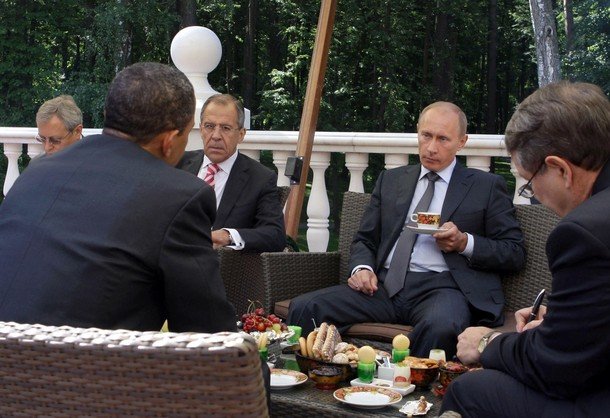
Reuters reports:
When it comes to power, politics trumps business, according to a new Forbes ranking on Wednesday that found heads of state occupying six of the top 10 spots among the world’s most powerful people, led by President Barack Obama.
Obama was joined in the top 10 by German Chancellor Angela Merkel, Russian President Vladimir Putin, King Abdullah bin Abdulaziz al Saud of Saudi Arabia and British Prime Minister David Cameron.
It’s interesting. The world runs on the private sector. But even according to proponents of business, such as the editors of Forbes, it’s the politicians who really matter.
This is revealing. It shows how subjected business people feel to the whims, actions and statements of politicians.
Think about what makes for a successful politician. Then, think about what makes for a successful person in business.
A politician (at least in a democracy) only must sell him- or herself. A politician has to get people to like him or her. This is usually done by claiming or showing oneself to be one of ‘the little people’ or ‘a regular person—just like you.’
This is ironic, because a politician is less regular than most. Most political officials are highly educated and live a life of celebrity (at least to some degree) that regular or average people only enjoy with their families and friends.
Nevertheless, the game for anyone running for office is to prove how ‘regular’ he or she is. Mitt Romney is said to have lost the last election because he did not seem regular enough. Obama, on the other hand, was seen as being concerned with the average guy, and therefore got the nod for a second term.
Politics is not based on actual accomplishments nor even reality at all. It’s all about perception and manipulation. You don’t vote for a politician because of something objective he or she accomplished. Most people vote for a politician because they feel he or she is the way a spouse, a mommy or a daddy might be and ought to be. It’s all psychological, inferential, relational—and often dishonest.
Business could not be more different. Businesses must please customers, first and foremost. Businesses rely on the voluntary willingness—and financial ability—of consumers to purchase their products or services. Businesses have to deliver, as advertised, something concretely and objectively valuable. Even when the value of the product or service is questionable, businesses still rely on the voluntary consent of their customers–unlike politicians who, once elected, get to rule much of your life whether you voted for them or not.
In a proper society, fraud is against the law. However, fraud is not sustainable anyway, not over the long run, because reputation matters in business. In business, if you don’t deliver, you’re fired. Even if you do deliver, if someone comes along who delivers better—you’re fired.
Contrast this with politics. In politics, the worse a government-subsidized enterprise performs—public schools for example—the more they’re rewarded with additional funds. Then they do even worse—by everyone’s agreement—and they’re rewarded with still more funds.
So long as your elected leader has the pull and personality style to pull off more funds, those funds will be forthcoming. It’s about pull and personality, in politics. In business, it’s about objective excellence and competence—and sometimes even those are not enough.
It’s fashionable to trash private business in favor of big, expansive government. But the reality persists: Business creates for willing consumers what’s most valuable to a society. It does this on the basis of profit and self-interest—and these are good things. Profit and self-interest get you computers and jets. Selfless government services give you (at best) a soup kitchen. As I recall Woody Allen saying in one of his movies, “If it’s a choice between the Pope and air conditioning–I’ll take air conditioning.” Amen.
It’s a sad reflection of what has happened to America that socialist democratic politicians now matter more—even to business leaders—than the private sector.
Try to keep in mind that without the hard working, innovative, creative and even heroic individuals who can only flourish in the private sector, these acclaimed politicians would have nothing to rule. Where would Barack Obama be without the rich and successful companies he so hates, and yet seeks to exploit and expropriate?
Those who can, achieve. Those who cannot, run for (and win) political office. And it’s those who cannot into whose hands we have placed much of our future.
Be sure to “friend” Dr. Hurd on Facebook. Search under “Michael Hurd” (Rehoboth Beach DE). Get up-to-the-minute postings, recommended articles and links, and engage in back-and-forth discussion with Dr. Hurd on topics of interest.
